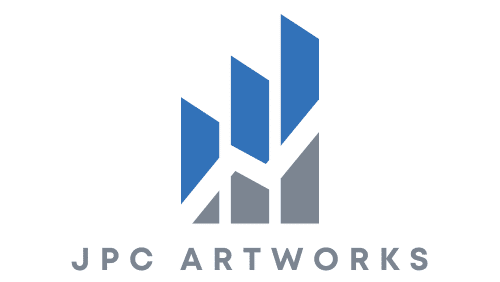What’s the Latest in Adaptive Learning Systems for Corporate Training Programs?

The realm of corporate training is constantly evolving, driven by technological advancements and an ever-changing business landscape. Today, the traditional ‘one-size-fits-all’ approach to learning no longer satisfies the diverse learning needs of modern employees. Instead, adaptive learning platforms are gaining traction, revolutionizing the way businesses deliver training and education to their workforce. This cutting-edge approach tailors educational experiences to each individual learner, leveraging data, feedback, and insights to provide personalized learning paths. The aim is to optimize the training process, ensuring that learners gain relevant knowledge in a time-efficient manner.
The Concept of Adaptive Learning
Adaptive learning is a methodology based on the premise that each learner is unique, with individual strengths, weaknesses, and pace of learning. Instead of delivering the same content to everyone, adaptive learning systems use data about each learner’s performance and progress to provide a personalized learning experience.
This might interest you : How Is AI Revolutionizing Precision Agriculture for Small-Scale Farmers?
The benefit of adaptive learning is that it can accelerate the learning process for those who grasp concepts quickly while providing extra support for those who need more time. Moreover, it can identify knowledge gaps and adjust the content to focus on those areas, ensuring comprehensive coverage of the necessary material.
Utilizing adaptive learning platforms for corporate training has the potential to boost employee engagement and retention rates. It can also lead to improved performance and productivity, as learners are more likely to apply what they’ve learned when the material is relevant and delivered at a pace they can handle.
Also to discover : Can AI-Enabled Virtual Coaches Improve Mental Health and Productivity?
The Role of Data in Adaptive Learning
Data plays a pivotal role in adaptive learning systems. These platforms collect data from various sources, such as learner’s interactions with the content, their performance on assessments, and feedback provided. This data is then analyzed and used to customize the learning experience for each individual.
For instance, if a learner consistently struggles with a certain topic, the platform can provide additional resources or alter the presentation of the material to aid understanding. On the other hand, if a learner shows proficiency in a certain area, the platform can adjust the content to present more challenging material, preventing boredom and fostering continued engagement.
The use of data in this way not only provides a more personalized learning experience but also offers valuable insights into the effectiveness of the training materials and methods. This can inform future training initiatives, ensuring they are as effective as possible.
Adaptive Learning Platforms for Corporate Training
Adaptive learning platforms are becoming increasingly popular for corporate training programs. They offer a range of features that make learning interactive and engaging, such as gamification elements, multimedia content, and social learning opportunities.
These platforms also incorporate predictive analytics capabilities, which can anticipate a learner’s needs based on their past performance and behavior. This allows the platform to present relevant content at the most opportune moment, enhancing the learner’s engagement and retention of information.
For example, an adaptive learning platform might identify that an employee frequently accesses training materials in the evening. Knowing this, the platform could schedule challenging content for this time, when the employee is most likely to be focused and engaged.
The Future of Adaptive Learning in Corporate Training
The future looks bright for adaptive learning in corporate training. As technology becomes more sophisticated, these systems are likely to become more intuitive and effective at personalizing learning experiences.
One exciting development is the integration of artificial intelligence (AI) into adaptive learning systems. AI can enhance the capability of these platforms to analyze data, make accurate predictions, and adapt content in real-time. This will lead to even more personalized and efficient learning experiences for employees.
Moreover, as more businesses recognize the benefits of adaptive learning, there’s likely to be an increased demand for these platforms. This will drive further innovation in the sector, with platforms evolving to offer an even greater range of features and capabilities.
While the journey to fully adaptive learning in corporate training is still ongoing, the strides made so far are promising. As these systems continue to evolve, they will undoubtedly play a crucial role in shaping the future of corporate training, benefiting both businesses and learners alike.
Final Thoughts
Embracing adaptive learning for corporate training programs is more than just a trend. It’s a strategic move that can significantly enhance the effectiveness and efficiency of training initiatives. By delivering personalized learning experiences, adaptive learning platforms can engage employees in the learning process, boost knowledge retention, and ultimately drive business performance and growth. Despite the challenges that may come with implementing these systems, the potential benefits they offer make them a worthwhile investment for any forward-thinking business. While we haven’t concluded the article, it is clear that adaptive learning systems are set to revolutionize corporate training.
Integrating Artificial Intelligence in Adaptive Learning
Artificial intelligence (AI) is a technological advancement that is transforming various sectors, and the domain of corporate training is no exception. In the context of adaptive learning, AI is set to revolutionize the way learning platforms deliver personalized training to employees.
AI has the ability to handle vast amounts of data, analyze it in real-time, and make crucial decisions based on the findings. This makes it a particularly potent tool for adaptive learning platforms. By integrating AI into these platforms, organizations can provide learning experiences that are not only tailored to learners’ individual needs but also continually adapted based on real-time feedback and performance indicators.
For instance, AI can analyze a learner’s interaction with the platform and detect subtle patterns that may indicate struggle with a particular topic. The AI-powered learning platform can then automatically adjust the learning content or employ different teaching methods to help the learner grasp the subject matter better. Conversely, if the AI detects that a learner is breezing through a topic, it can present more challenging material to keep the learner engaged and stimulated.
Furthermore, AI has the potential to predict learning paths that will maximize learner engagement and knowledge retention. By analyzing past performance data and learning trends, AI can anticipate what type of content a learner is likely to find most engaging or beneficial, and when they would be most receptive to learning it.
In essence, the integration of artificial intelligence into adaptive learning systems is set to make these platforms smarter, more responsive, and more effective at delivering personalized, engaging, and effective corporate training.
Conclusion: The Transformative Potential of Adaptive Learning Systems
In conclusion, adaptive learning systems are pioneering a new era in corporate training. Through the creation of personalized learning paths, they are enhancing the learning experience, making it more engaging and effective for the modern-day employee. The role of data in customizing these paths cannot be overstated, as it provides the much-needed insights into the learner’s progress and areas of struggle.
The integration of artificial intelligence is set to take adaptive learning to even greater heights. By enabling real-time analysis and adaptation of learning content, AI is ushering in a level of personalization and efficiency previously unimaginable.
However, the success of adaptive learning platforms in corporate training also depends on businesses themselves. Companies need to recognize the value of these platforms and be willing to invest in them. They also need to foster a data-driven culture that supports personalized learning and continuous development.
The journey towards fully adaptive corporate training might still be ongoing, but the potential benefits are clear. As technology evolves and more businesses embrace adaptive learning, the transformation of corporate training is set to continue, for the benefit of both businesses and learners.
Therefore, the future of corporate training lies in the adoption and refinement of adaptive learning systems. This approach promises not just to enhance training programs but to revolutionize how learning and development are approached in the corporate world.
